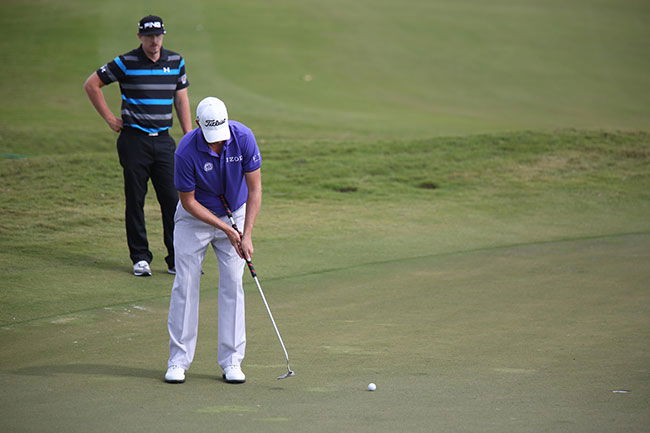Pelz on putting
Why it's the most unforgiving part of golf

What can we learn from watching top pro events? Top short game coach Dave Pelz, a regular feature on the practice grounds at major events, has some sound advice.
Phil Mickelson has always been blessed with a short game to die for. But he wasn’t making the most of his talents until he met Dave Pelz.
The short game instructor has now helped the world's best left-hander to win four majors and has transformed his practice sessions with analyses and pressure routines.
But Pelz’s obsessive statistic gathering can also help amateur golfers to knock strokes off their handicap, too, he says.
He has a 'Shot Quality Chart' that identifies the importance of shots on a scale of 0 to 10.
“When you hit a poor drive,” Pelz said, “you can recover with a good iron or wedge shot or hole a putt. The importance of your drive is a '3' relative to your ability to score. But the consequence of a poor short game shot is more critical because there are fewer chances to recover. So chipping and pitching rates at a '7'.”
Pelz has calculated that when scrambling from 10-30 yards from the hole, from a fairway lie, Tour pros get up and down 58% of the time while single handicappers have a 30% success rate and mid to high handicappers come in at just 10%.
“But putting,” he says, “is the most unforgiving to good scoring. When you miss a putt, there is no chance to recover. You add a stroke and putt again. That’s why putting is a '9'.” All of which goes to show why you will see Mickelson practising for hours on the putting green.
He places 12 balls in a circle like a clock and has to hole three balls in a row from each position. One miss and you start again. Varying the distance of the putt increases the pressure.
So take Pelz’s advice: stop belting buckets of balls with your driver. Start chipping and putting to save shots. You won’t win a major but you might win your monthly medal.
Tell us on the forum what you've learn from watching pros in action or tweet us @golfmagic
Article first published August 2007, updated May 2013
��

